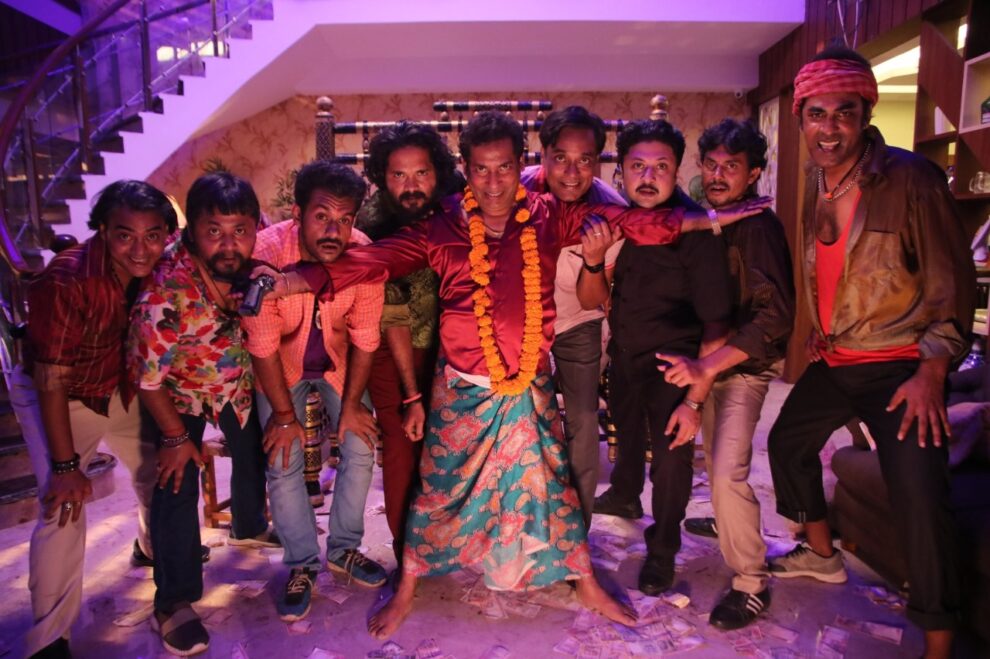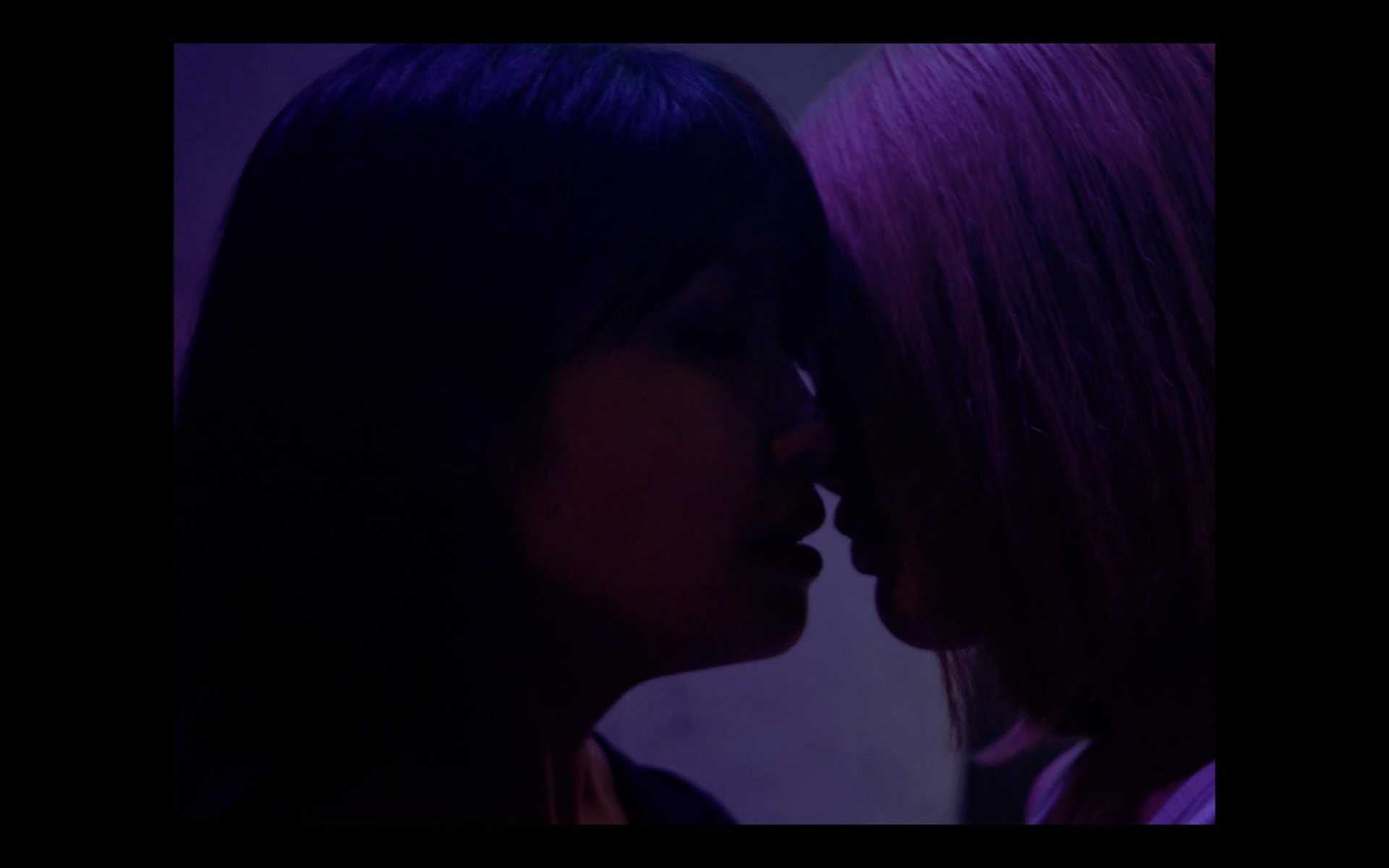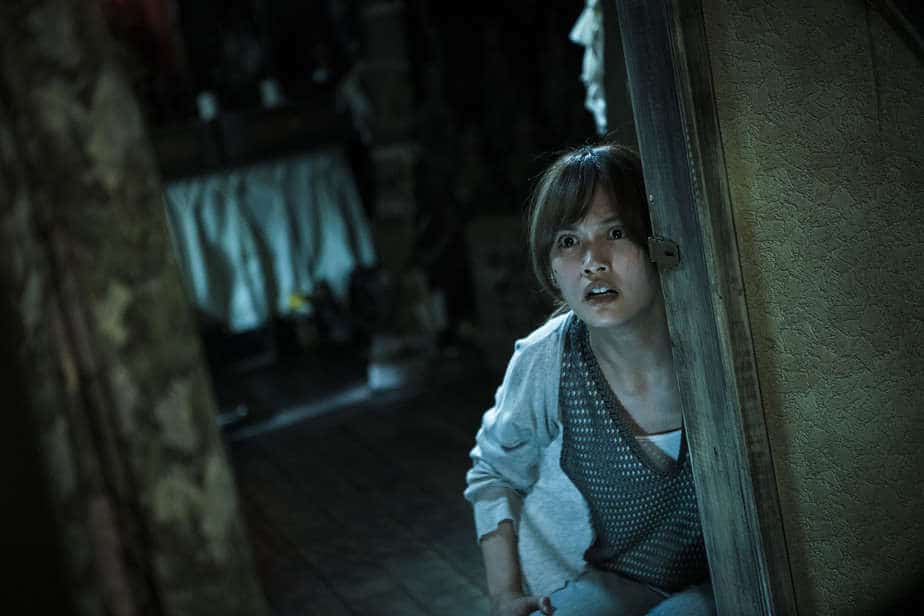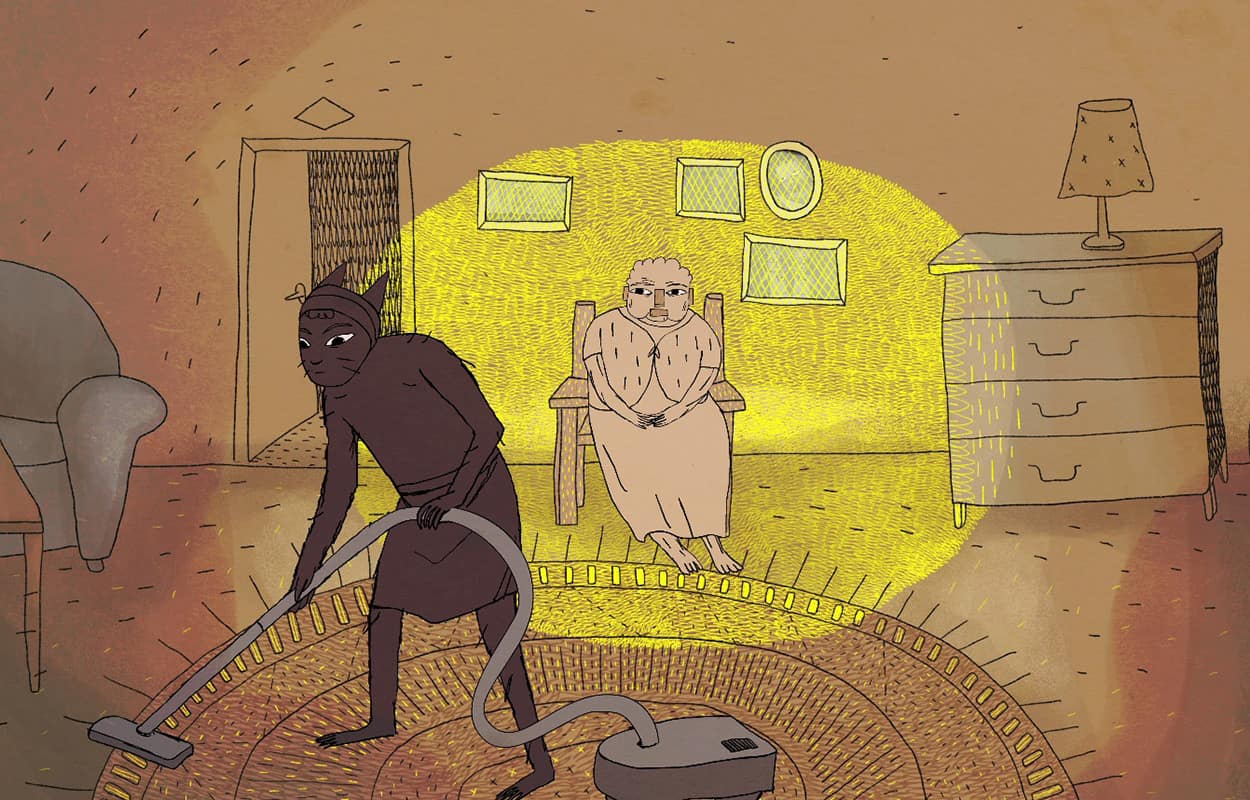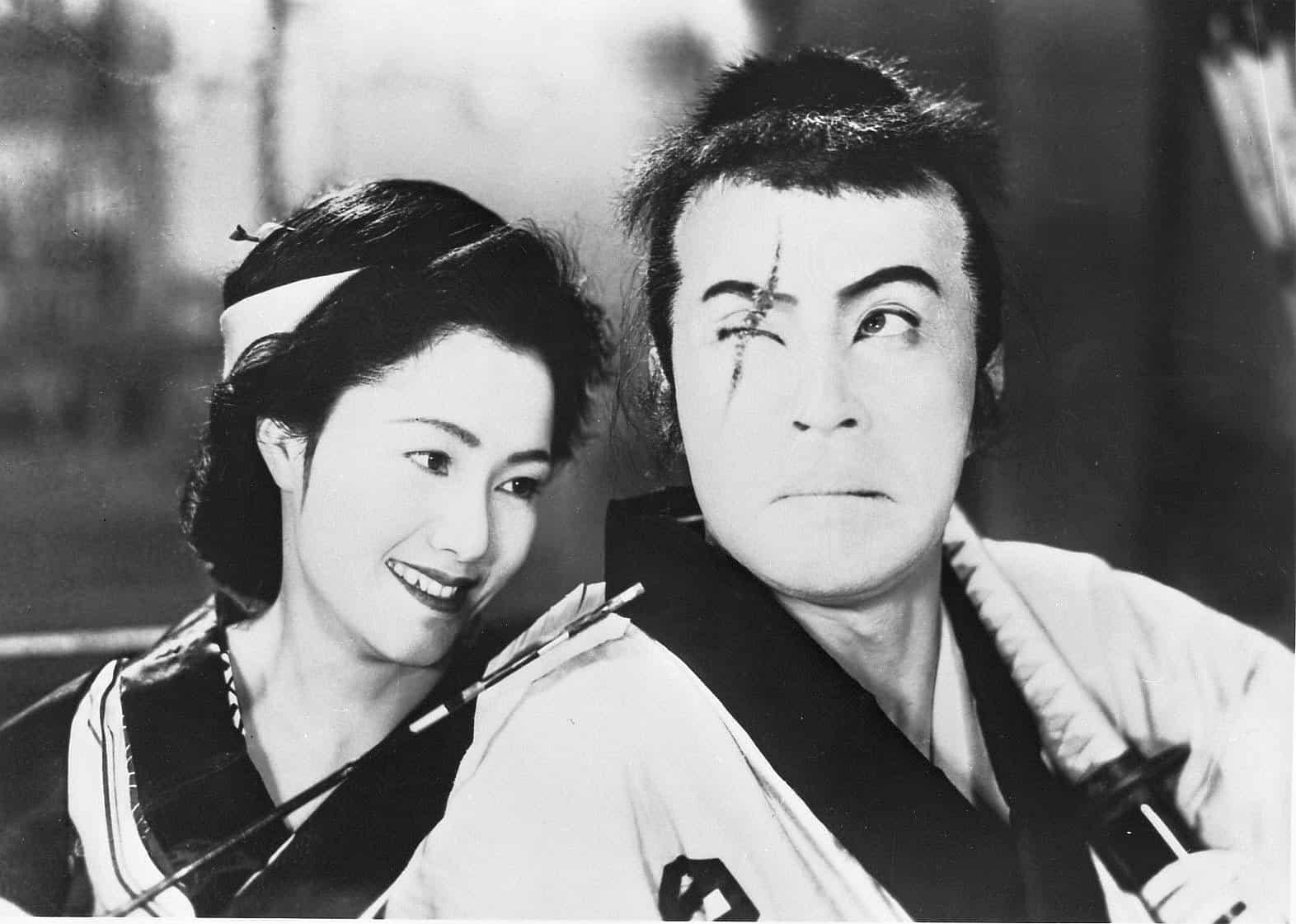by Rwita Dutta
Celebrating messiahs from the underbelly of any society is nothing new. Nevertheless, there has been a serious dearth of noir films in the history of Bangla cinema. Every time the city is seen in cinema, it remains visually stunning. Yet, surprisingly, the underdogs are carefully swept under the carpet. Under the project of the beautification of the city, there has been no place for slums, everyday violence, brothels and other kinds of chotoloks (downtrodden). Yet, without them, the State and the bhodrolok community, who write the history of any decade from above, would be a sham. Bratya Basu's “Hubba” (Don/ 2024/133mns) depicts the life and rise of Hubba Shyamal aka Bimal (his screen name) and the volatile nexus of politics within the underworld. In other words, it is a biopic on the notorious gangster Hubba Shyamal in the 1990s Hooghly, played by popular Bangladeshi actor Mosharraf Karim.
From Osama Bin Laden to Hubba Shyamal, all are created by people in power. Their metamorphosis as Frankenstein compelled their creators to diminish them forever. Via Hubba, Bratya, in fact, penned down the socio-political intricacies of a particular era. When the Left was in power, underdogs like Hubba reigned supreme. How he used the political power to rise above law, or how the political supremos used him to execute their unlawful activities, constitutes the main narrative.
Following a linear pattern, Bratya narrates Hubba's flamboyant life. He was a sucker for underworld films. From time to time, he relishes watching Ram Gopal Varma's “Sarkar”, “Shiva” Shimit Amin's “Ab Tak Chhappan”, and Mahesh Manjrekar's “Vaastav”. Hubba's life as a full-fledged mafia don flourished during the nineties. Alongwith came the director's nostalgia. And those moments are created and recreated by a few flickering moments, by the signature songs used, the idioms of the characters, the sexual fantasies – all brings back the reminiscences of the bygones.
The director invariably celebrates Hubba but simultaneously he shows the inevitable consequence of rampant corruption, violence and debauchery. The main text of this dark film came from the much-acclaimed book of the then DIG Supratim Sarkar's “ Goyendrapith Lalbazar” that accurately documents the events from the past police files. Once a terror in Hooghly district, “Hubba” is an unmitigated political thriller. Good Samaritan for the majority, he seems to be more honest than the political leader under whom he operated. Or more transparent from his right-hand Bokaro Bapi (brilliantly played by Loknath Dey) or maybe than his childhood lover – later his wife Tapasi (Zinia Sen is apt for the role).
There has always been a ubiquitous silence around the brutality of police as well as criminals working for them. Even the mainstream media inadvertently miss these critical episodes of history. Hubba ruled the underbelly of society consistently for a long time, which provided him with extraordinary leverage to establish his supremacy legitimately. He no more wanted to be a pawn in the hands of the party leader. He wished to own the power and eventually become absolute power through democratic arrangements. He was about to file his nomination for the forthcoming election. Threatened by his popularity among the locals and his exemplary upswing, a vile collaboration of political party, police, his own family and friends, his voice was silenced forever. Elections are often won by violence or scientific rigging. Goons like Hubba are used randomly by the State for this purpose. This time Hubba wanted to serve his own self. And he had to pay the price!
West Bengal politics have always been the site of endless conflicts, yet there has always been a silence pervaded around them. Films regarding that turbulent period have always remained absent. Same with crime films. Heroes here are represented as supermen, morally upright. Interestingly, with the beginning of liberalization, losers started masquerading the scene so much so that hardly any partition between the good and evil remained pertinent. Once branded as villains, they are being presented as the protagonists in the cinematic imagination of the nation. Within the dilapidated image of the State, the characters joyously belong to the marginal peripheries or the underbelly of the society. The film almost forcefully redirects the notions of crime and corruption from the so called ‘villain' or ‘gangster' figures to the actual war mongers and presents them as integral to the daily and mundane middle-class life and psyche.
The cat and mouse game between CID officer Dibakar Sen and Hubba is enchanting to the core. While the film enters into a familiar criminal-police premise, it soon leaves behind these routine affairs and engages slowly with a more diabolic situation. The doppelganger style of the film presents the two main characters as the mirror images of one another. Their similarities in their respective private lives are striking. Both are sadistic to the core in terms of treating their dear ones. In the murky world of violence, both are deviants. Only difference is that, while one is standing behind the bars, the other right in front of it. Under changing circumstances, Dibakar can become Hubba or vice versa, anytime. Had Hubba been elected by the populace, in no time, Dibakar had to serve him. Such is the irony.
In Hubba's world, a kind of hyper masculinity reigns supreme. This is no country for women. An all-pervasive male gaze dominates the scenario. Women are either sexy sirens or mentally deranged. This is quintessentially a Hubba-raaj, which may or may not end with his brutal murder. The making of “Hubba” hopefully will pave the emergence of noir Bengali cinema that is conspicuous by its absence so far. Hubba is the fifth film in Basu's filmography. It begins where his first film “Raasta” (The Road/2003/125mns) ends.
Bengali cinema failed to construct a world of the dark underworld the way Bombay cinema did. Sporadic representation of this dense world left us with a desire for more. Basu fills up the lacuna. As Hubba expressed during an interrogation how he feels inspired by the character “Chenno”(played by Samit Bhanja) in “Apanjan” (Tapan Sinha/ 1968/135mns), Basu, also evidently influenced by his all-time favorite Directors Ram Gopal Verma and Anurag Kashyap, explores the mafia raaj impeccably. Whereas Bengali cinema mostly remains indoors these days, Basu's characters dominate, occupy and rule the real palpable world. Thus, Hubba represents a counter narrative to the mainstream commercial popular film while being entertaining to the core. Hubba's world draws us into the vicious labyrinth of despair, desire and degeneration of souls where the illegitimate challenge and question the legitimate. “Hubba” is a scathing critique of the Classic Bengali Hero with his traditional moral values. His world is raw/dark that accentuates the bleak, dystopian, postcolonial society that mainstream filmmakers tend to shy away from. “Hubba” is a conscious attempt to exercise certain noir techniques that invoke mature themes like gory violence, crime, moral decay, betrayal and tragic death.
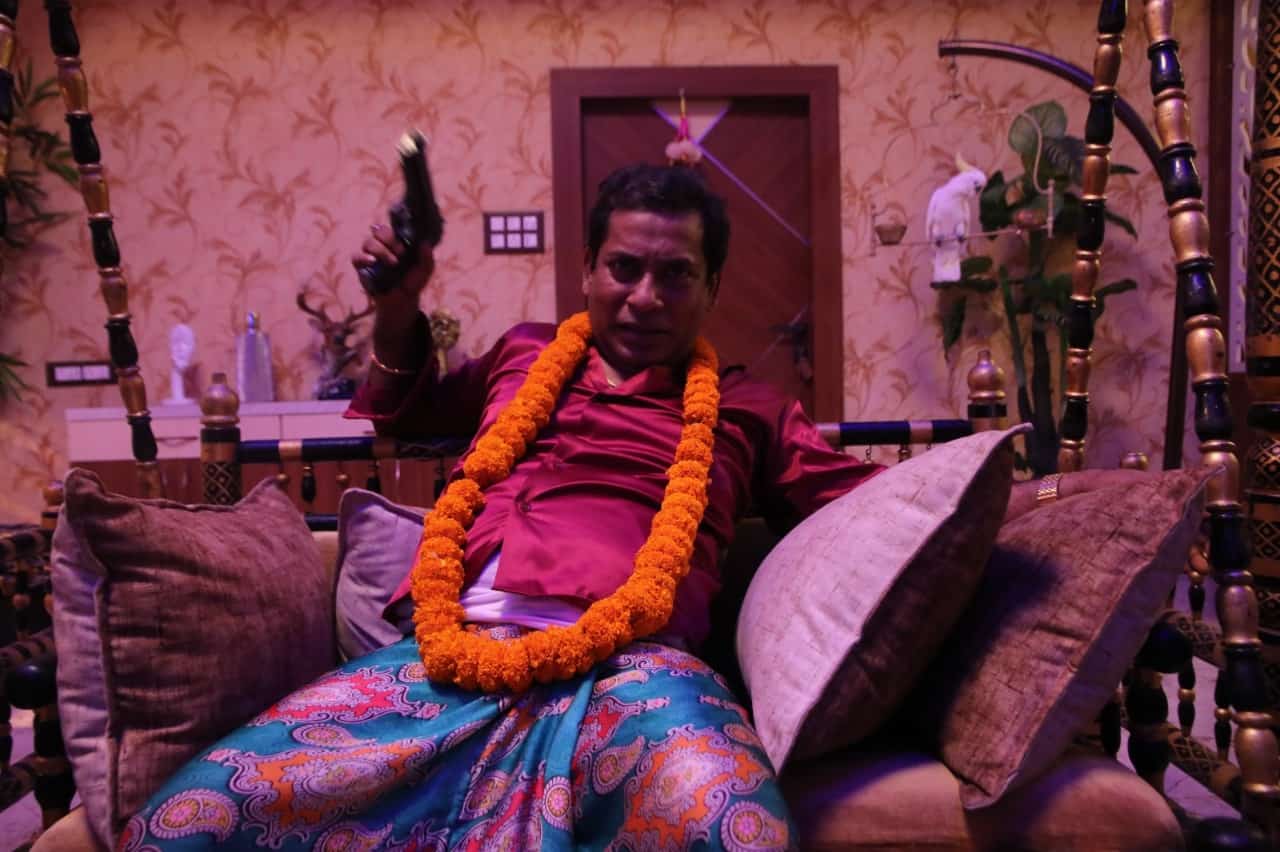
Mosharraf Karim does justice to the role, as does Indraneil Sengupta as the police officer. Basu has used actors from theater and the result is formidable. The two actors worth mentioning are Gambhira Bhattacharya as the young Hubba, and Lokenath Dey as Bokaro Bapi. Zinia Sen steals the show as Hubba's lover/wife and so does Poulomi Basu as the lonesome wife. Soumik Halder's camera captures the nuances of the dismal elements of everyday life and the happenings of a rising gangster. So is Sanglap Bhowmik's editing. Prabuddha Banerjee's music and the songs sung by Shilajeet create an edgy atmosphere.
Delving deeper into man-woman relationships, or investigating the gangland intensely, Basu's oeuvre as a filmmaker constructs a curious trajectory. His exploration of both the mediums, theater as well as cinema, have made him an irresistible creator of his/our time.


